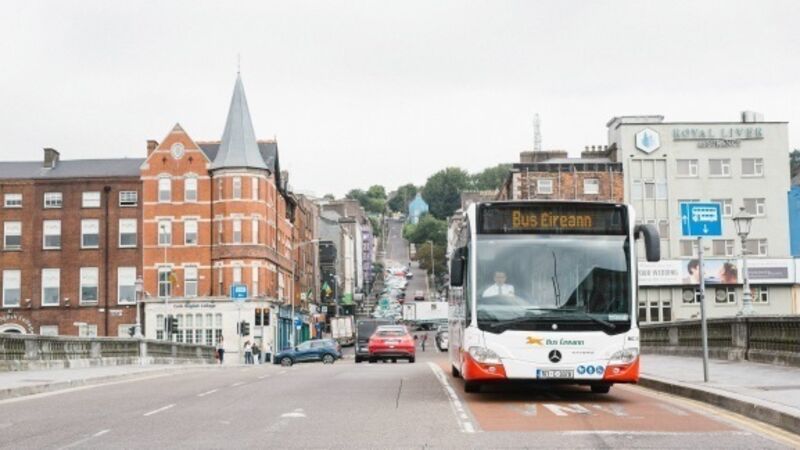Bus Éireann cuts plan to be revealed

Jobs, services, and overtime payments are all potential targets of the cost-saving strategy which comes amid warnings that the company faces insolvency.
It emerged yesterday the company is pushing Government for an increase in the contribution it gets for carrying passengers eligible for free travel as a way of channelling more money into it without breaching EU rules on state aid to business.
But even if that fig leaf proposal was accepted, it would still leave the company with tough decisions to take, particularly on its ailing Expressway service.
Bus Éireann said it would retain Expressway as part of the company but added: “However changes are urgently required to address the company’s adverse financial situation.”
This may result in alterations to the operation of some routes, but the National Transport Authority have advised they will ensure local demands for public transport are met, and that “no rural communities will be left behind”.
A spokeswoman also confirmed that the company had raised the issue of free travel passengers. “We are in talks with Government and other relevant stakeholders to seek to address the underfunding of the free travel scheme,” she said.
The State contribution towards the cost of carrying such passengers has remained unchanged for the past seven years despite a 30% rise in the numbers travelling under the scheme.
Overtime payments, running at up to €13m a year, may also be targeted, according to leaked documents — this at a time when staff are seeking a pay rise.
Any cuts are set to be fiercely opposed by unions at the company who include Siptu, Unite and the NBRU.
Unite officer Willie Quigley criticised the manner in which the company’s cost-cutting plans had been aired. “Our members have been subjected to a barrage of leaks,” he said.
He called for immediate publication of a consultants’ report into the company’s financial troubles which has so far not been shared with the unions. “The difficulties facing Bus Éireann can only be resolved through a transparent engagement between all stakeholders,” he said.













